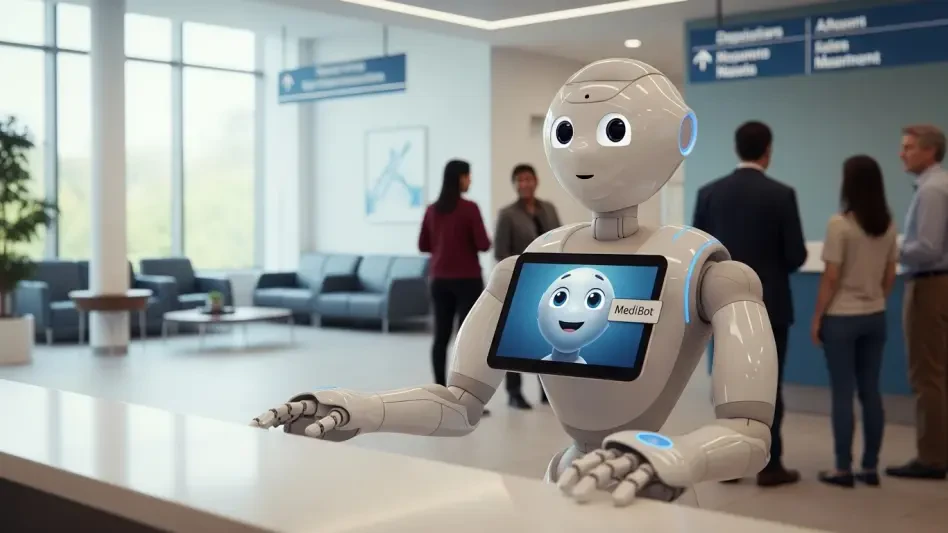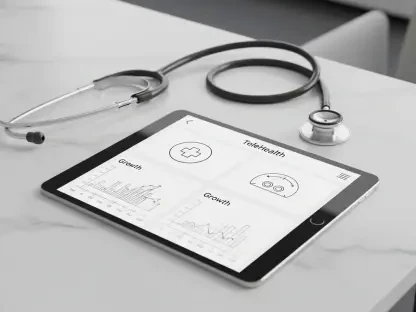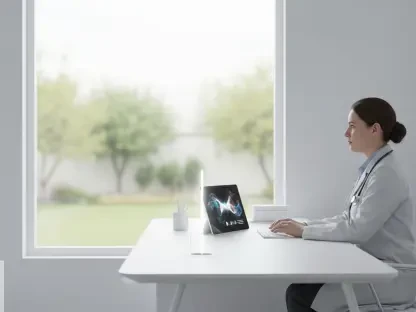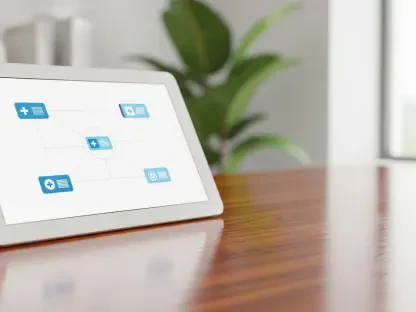In a world where a single phone call to schedule a doctor’s appointment can stretch into an agonizing 30-minute wait, the frustration of navigating healthcare systems is palpable, leaving patients stranded on hold or wrestling with clunky apps that fail to deliver answers. Enter Hyro, a New York City-based startup that has just secured $45 million in funding to tackle this chaos with cutting-edge conversational AI agents. This staggering investment, led by Healthier Capital, signals a bold step toward transforming how patients and health systems connect, promising a future where a quick chat with an AI could resolve medical queries in seconds.
Why Healthcare Needs a Digital Lifeline
The significance of Hyro’s mission cannot be overstated in an era where digital fluency shapes patient expectations. With younger generations accustomed to instant services like ride-sharing or food delivery, the healthcare industry’s reliance on outdated communication tools feels like a relic of a bygone age. This disconnect results in overwhelmed call centers and dissatisfied patients, amplifying the urgent need for innovation. Hyro’s $45 million raise, bringing its total funding to $95 million, underscores growing investor confidence in AI as a tool to bridge this critical gap, offering a lifeline to an industry buckling under rising costs and staffing shortages.
The stakes are high for health systems struggling to meet modern demands. Traditional chatbots often falter when faced with the complexities of real-world medical inquiries, leaving both patients and staff frustrated. Hyro steps into this void with a vision to streamline interactions, ensuring that routine tasks no longer drain resources or test patience. This funding milestone marks not just a financial boost but a validation of the transformative potential AI holds for an overburdened sector.
Breaking Down Barriers with Conversational AI
At the heart of Hyro’s approach lies a technology designed to act as an “AI teammate” for healthcare providers. These agents go beyond basic chatbots by automating up to 85% of routine patient interactions, such as booking appointments, refilling prescriptions, and verifying insurance details. Operating across phone, text, web, and mobile apps, they ensure accessibility for all users, regardless of their preferred communication channel. This multi-platform presence is a game-changer, reducing the friction that often defines patient experiences today.
What sets Hyro apart is its seamless integration with critical systems like electronic health records (EHRs), scheduling platforms, and billing software, including giants like Epic and Salesforce. This interoperability allows for smooth workflows, ensuring that data flows securely and efficiently between systems. The result is a significant reduction in operational bottlenecks, with contact center costs slashed by 35-45%. For health systems, this translates into tangible savings and the ability to redirect focus toward complex patient needs.
Real-world impact speaks louder than promises, and Hyro’s track record delivers. Baptist Health, for instance, saved nearly $1 million through workflow automation, while Intermountain Healthcare saw call abandonment plummet by 88% and enabled 79% of website visitors to self-serve. These figures highlight how Hyro’s rapid deployment—often under 120 days, even for intricate voice AI systems—addresses urgent needs without sacrificing quality or safety, positioning it as a leader in practical healthcare innovation.
Voices of Change in the Industry
Israel Krush, CEO of Hyro, captures the driving force behind this technology with a clear-eyed perspective: “Patients today demand healthcare to match the simplicity of ordering a ride online—our AI agents make that possible.” His vision, inspired by the digital expectations of younger generations, fuels a mission to redefine patient engagement. Krush’s emphasis on intuitive experiences resonates with a growing frustration over outdated systems that fail to keep pace with modern life.
Client testimonials reinforce this narrative with hard evidence of transformation. Intermountain Healthcare reported a striking 44% automation rate for repetitive calls, easing the burden on staff while enhancing access for patients. Meanwhile, Baptist Health’s near-million-dollar savings reflect a measurable return on investment that validates Hyro’s approach. These insights from the frontline paint a picture of an AI solution that doesn’t just promise change but delivers it in concrete, quantifiable ways.
In a competitive landscape dotted with players like Microsoft’s Nuance and Amwell, Hyro carves out a niche by prioritizing battle-tested reliability over flashy demonstrations. Krush critiques rivals for focusing on surface-level appeal rather than deep integration with clinical and operational systems. This commitment to production-grade solutions, backed by robust safeguards for patient data, offers a refreshing contrast, ensuring that innovation aligns with the practical realities of healthcare delivery.
Lessons for a Smarter Healthcare Future
Health systems looking to modernize can draw valuable insights from Hyro’s playbook. First, investing in purpose-built AI tailored to healthcare workflows is essential, ensuring compatibility with existing systems like EHRs and billing platforms for optimal efficiency. Generic tools often fall short in addressing the sector’s unique challenges, making specialized solutions a priority for meaningful impact.
Accessibility also plays a pivotal role in bridging digital divides. Deploying AI agents across diverse channels—phone, text, web, and apps—meets patients where they are, enhancing engagement and satisfaction. This multi-faceted approach ensures that no one is left behind, regardless of technological comfort or preference, fostering inclusivity in care delivery.
Finally, a focus on measurable outcomes and scalability is crucial. Starting with pilot programs to automate routine tasks, tracking metrics like cost savings or call reductions, and expanding based on proven results offers a pragmatic path forward. With safety as a cornerstone—through stringent data protections and rapid deployment timelines under 120 days—health systems can embrace innovation without compromising on quality or trust.
Reflecting on a Digital Turning Point
Looking back, Hyro’s journey with a $45 million funding boost marked a defining moment in healthcare’s digital evolution. The startup’s conversational AI agents had proven their worth, automating patient interactions, slashing costs, and enhancing accessibility for major health systems. Their success with clients like Baptist Health and Intermountain Healthcare stood as a testament to the power of tailored technology in addressing long-standing inefficiencies.
As the industry moved forward, the path became clear: health systems needed to prioritize AI solutions that balanced innovation with reliability, ensuring rapid implementation and robust safety measures. Exploring partnerships with pioneers like Hyro offered a way to test and scale these tools, adapting to patient expectations without losing sight of care quality. This shift toward AI-driven communication held the promise of not just solving today’s challenges but building a foundation for a more responsive and patient-centric healthcare landscape in the years ahead.









